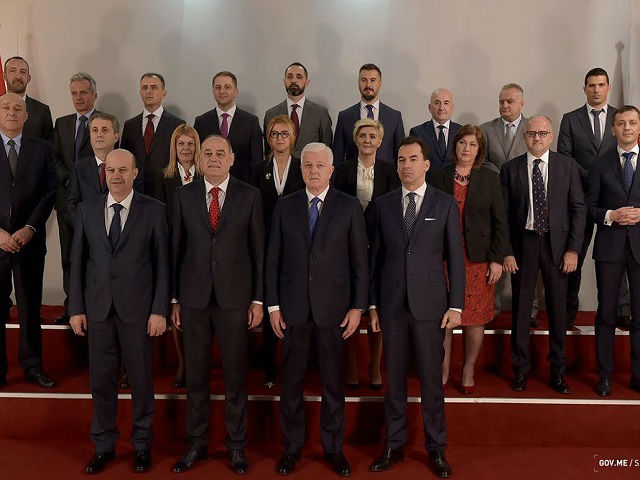Decision that the former Prime Minister, now MP, Duško Marković and several ministers of the previous government violated the Law on Prevention of Corruption is late, primarily due to the manner in which the Agency for Prevention of Corruption (APC) dealt with the obvious conflict of interests of the mentioned public officials.
At the end of October last year, MANS submitted an initiative to APC to initiate proceedings against the former Prime Minister Duško Marković, as well as ministers Milutin Simović, Predrag Bošković, Mevludin Nuhodžić, Dragica Sekulić, Nikola Janović, Suzana Pribilović and Damir Šehović, for violating the law pertaining to incompatibility between the office of an MP and a member of the Government of Montenegro.
Although the initial reaction of the director of APC, Jelena Perović, was that the institution was not going to deal with it because it was not competent, in mid-November it was announced that APC would initiate proceedings against Marković and former ministers. The only thing the Agency had to do in this case was to state that Marković and the ministers in the Parliament verified the parliamentary seats and that within 30 days they did not return one of the two public offices they were performing at that time.
In relation to the famous statements of Marković and the ministers that they would “freeze the MP office”, the Agency had to know that such a legal institute does not exist, and that it cannot be of significance for making a final decision on the existence of conflict of interests.
However, unlike other cases that APC expressly resolves, in the case of former members of the Government of Montenegro from the ranks of DPS and SD, it took months to state what was clear to everyone from the very beginning – that the offices of the executive and legislative authority are incompatible.
We do not believe that the lack of capacity of APC and the possible legal ignorance of Director Perović could have had any part in prolonging this decision, instead, it was only a conscious intention to keep Marković and the mentioned former ministers in such a conflict of interest and their offices within the executive authority.
This is supported by the fact that since the verification of office, MP Marković and his fellow ministers have held as many as 14 government sessions in the Parliament of Montenegro and adopted dozens of decrees, decisions and amendments and decided on issues whose implementation was far beyond the authorities of the so-called outgoing government. Thus, until the last day of such office, Marković and former ministers employed, disposed of state and natural resources, as well as the budget for 2020, without any restrictions.
All this was possible primarily thanks to such acting of APC and the decision of its director to leave the issue of conflict of interests until after the election of the new government, when the final decision would not have any substantial effects on the rule of law.
As in the case of President Milo Đukanović’s New Year’s flight to Paris, APC states that the proceedings against Marković and former ministers are ex officio, which is again untrue, and an attempt of the director of this institution to create the illusion that APC is independent and proactive in its work.
Continuing the practice of the so-called delayed response to apparent violations of the law, APC is strengthening its position as one of the key obstacles in Montenegro’s institutional response to accumulated corruption issues.
Dejan Milovac
Investigative Centre
MANS




